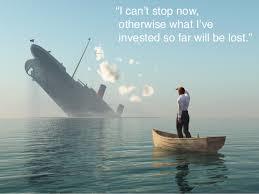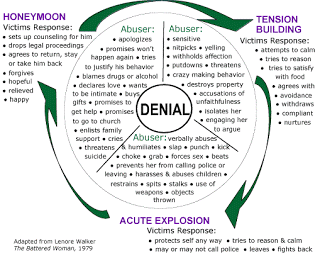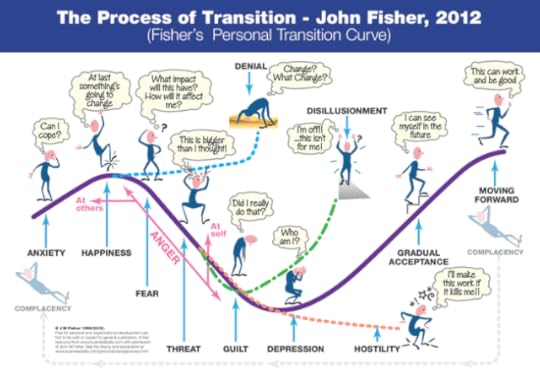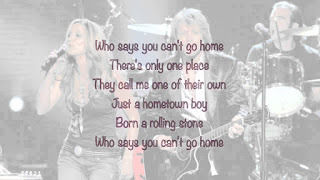Joe Guse's Blog, page 6
January 29, 2017
Understanding the "Sunk Costs" in our lives (and learning to let them go)

As a restless and wayward student, I studied a lot of different things as a young man.
But none of it really stuck. I dropped out and majored in travel instead. You didn’t have to spend so much money on textbooks.
But I did really like one course I took on Economics during those years. An old blustery dude with a beard made an impassioned plea that EVERYTHING was economics. History, politics, sociology. You name it. I can still remember his words.
“And many of you will live your lives chasing after “sunk” costs. You will stay in jobs you hate, relationships that no longer work, and in investments that are doomed to fail. And what is a sunk cost exactly? It’s when you tell yourself that you can’t quit because of all that time or money you've already spent. Sometimes in economics, we have to be shrewd enough to know when we have failed and release a losing hand with a lesson learned.”
I was 19 when I heard that. But I never forgot it. I was even a little irritated by his self-assurance. You don’t know me! How do YOU know I’m going to do that??
But somehow the bearded guy knew…
Which raises a good question about how sunk costs work in relationships. Many, many people I know both personally and professionally stay in relationships that no longer work for them. They stay because they’ve been together so long, or maybe because they think the other person will change. Will alter their course.
But this seldom happens. The best predictor of future behavior is past behavior. It’s another solid economic principle.
The workplace is another area we tend to use sunk costs. We stay at a job we dislike for years, because really, who wants to start over again? Humans have a fascinating ability to rationalize in all directions. If we’ve made a shitty investment, we start to see the positives in the decision to help salvage our own egos. Research in social psychology demonstrates this principle again and again.
Which is not to say there isn’t value in trying to make things work. In our relationships and our jobs and our friendships, we’re always going to have moments of boredom and frustration. We start to imagine greener grass and more exciting options. That’s just the nature of the human imagination.
But we also have to know when to release a losing hand.
An important example of this comes in relationships that have become abusive. Although physical abuse is an awful and easily demonstrable example, many kinds of relationships can become abusive. Maybe it’s someone who belittles you, or is verbally abusive, or perhaps emotionally manipulative. But all abusive relationships tend to follow a predictable pattern of tension building, abusive behavior, a honeymoon period, and then rinse and repeat.

And denial is the fuel that keeps this cycle churning.
Perhaps the biggest tragedies of sunk costs are the amount of time they steal from our lives. As a therapist, I’ve heard many sad stories of people deeply saddened by the time they’ve wasted that they can never get back. Years in relationships without love or passion, decades in jobs where they are unappreciated and unfulfilled.
But I’ve also heard a lot of happy endings to these stories. People that went back to school in their 50’s and started a new life. Men and women who finally had the courage to leave an abusive relationship and start over after overcoming their fear of the unknown. People that chose to pursue a dream after years of dormancy and reticence.
And these people all had one thing in common. Their desire to change had finally become stronger than their desire to stay the same. They got angry. Got motivated. Finally realized that they weren’t promised an unlimited amount of time here.
Henry David Thoreau said, “The cost of anything is the amount of life you exchange for it.” It’s a brilliant way of looking at it. Every minute we chose to spend on things that don’t bring us fulfillment or happiness is stealing time from something that might.
So as we enter into a new year, I pledge to think about what “sunk costs” exist in my own life. In the end, time is all we have, and we don't have an unlimited amount of it to spend. I urge you to do the same. To think about the things or perhaps even people in your life who take up your precious time with little or no return.
Sometimes letting go is the healthiest thing we’ll ever do.


Published on January 29, 2017 14:33
December 19, 2016
2016- Let's turn the page on that one
I don't like looking back. I'm always constantly looking forward. I'm not the one to sort of sit and cry over spilt milk. I'm too busy looking for the next cow.
Gordon Ramsey
“And Lot's wife, of course, was told not to look back. But she did look back, and I love her for that, because it was so human. So she was turned into a pillar of salt. So it goes.”
Kurt Vonnegut
I’ve been seeing clients, patients, people, in a professional capacity since 2006 or so. It makes me a middle-tier professional when it comes to experience. I WAS a bartender for a lot of years before that, and I think I should get to count that too. You hear a lot of confessions after three Jack and Cokes.
But I digress.
The point I want to make is, 2016, using the clinical definition, was a shit year for a lot of people. Certainly the worst I can remember. Terror around the globe, the death of Ali and Prince and David Bowie. Syria, race riots. The disgraceful tone of the US election (I don’t care who you voted for, it was disgraceful.) Not a great year in history by any definition you want to use.
But more than that, it was something I could feel in my conversations with my clients. Some years go by where nothing much happens. 2016 didn’t seem like one of those years for a lot of people. Maybe it’s a recency bias, but I know people reading this know what I’m talking about.
2016 was the Orange popsicle. The Lemon Starburst. The chocolate in the box with the coconut in the middle.
So a lot of people, including me, are ready to turn the page. You go into that new year with hope. Thinking about how things are going to be different this year. You’re going to lose weight. Be more loving. Save money. You know the routine. And the interesting thing is, we DO get a little emotional lift from anticipating how things are going to be different. We mentally see ourselves in the new clothes, the new body, the new relationship. But as we can see by this diagram, there always comes that moment.
This is bigger than I thought it would be.

In thinking about how to sustain change, I read a wonderful premise recently called “no more zero days.” No More Zero Days
The concept is, you don’t have any days where you take zero steps towards your goals. Maybe you walk around the block, or pay five dollars towards one of your bills, or write one small journal entry. But you make the deal with yourself that there will be no zero days. This is a great read and a great motivational tool.
But one thing I’ve learned personally is that the “be more loving" goal is really about the effort I want to make with people. Having lost another young friend too soon this year, I reflected on the following quote from Jorge Luis Borges,
“I felt what we always feel when someone dies–the sad awareness, now futile, of how little it would have cost to have been more loving.”
I make myself read this several times a week. “Loving” is not necessarily my default mode and I need a lot of reminders about this.
The fact of the matter is, we all have glorious things to say about people when they’re gone.
But no so much while they’re living.
So, I’m challenging myself to be more generous with my time this year. That’s a start. I’m doing a bit of pro-bono work as a psychologist as a beginning. It occurred to me that my last 20 New Year’s resolutions or so, have been all about ME. “I’m gonna lose weight this year, “I’m gonna save money this year” “I’m gonna date a supermodel this year.”
I’m like O for 20 on those.
So this year I’m challenging myself to direct more of my energy outwards instead of inwards. The standard New Year’s resolution doesn’t really work for me, and I’m not sure it works very well for anyone.
So this year I’m going to try and change my thinking instead.
So for all you out there that would also like to bury 2016 in a deep bunker underground, please hang in there and keep some hope. Every day we’re drawing breath we have a chance to do things a little better. Remember, No more zero days!
Cheers to a better 2017!

Published on December 19, 2016 14:30
December 11, 2016
Beating the Sunday Night Blues: My Prescription
<!-- /* Font Definitions */ @font-face {font-family:"MS 明朝"; mso-font-charset:78; mso-generic-font-family:auto; mso-font-pitch:variable; mso-font-signature:1 134676480 16 0 131072 0;} @font-face {font-family:"MS 明朝"; mso-font-charset:78; mso-generic-font-family:auto; mso-font-pitch:variable; mso-font-signature:1 134676480 16 0 131072 0;} @font-face {font-family:Cambria; panose-1:2 4 5 3 5 4 6 3 2 4; mso-font-charset:0; mso-generic-font-family:auto; mso-font-pitch:variable; mso-font-signature:-536870145 1073743103 0 0 415 0;} /* Style Definitions */ p.MsoNormal, li.MsoNormal, div.MsoNormal {mso-style-unhide:no; mso-style-qformat:yes; mso-style-parent:""; margin:0in; margin-bottom:.0001pt; mso-pagination:widow-orphan; font-size:12.0pt; font-family:Cambria; mso-ascii-font-family:Cambria; mso-ascii-theme-font:minor-latin; mso-fareast-font-family:"MS 明朝"; mso-fareast-theme-font:minor-fareast; mso-hansi-font-family:Cambria; mso-hansi-theme-font:minor-latin; mso-bidi-font-family:"Times New Roman"; mso-bidi-theme-font:minor-bidi;} a:link, span.MsoHyperlink {mso-style-noshow:yes; mso-style-priority:99; color:blue; text-decoration:underline; text-underline:single;} a:visited, span.MsoHyperlinkFollowed {mso-style-noshow:yes; mso-style-priority:99; color:purple; mso-themecolor:followedhyperlink; text-decoration:underline; text-underline:single;} .MsoChpDefault {mso-style-type:export-only; mso-default-props:yes; font-family:Cambria; mso-ascii-font-family:Cambria; mso-ascii-theme-font:minor-latin; mso-fareast-font-family:"MS 明朝"; mso-fareast-theme-font:minor-fareast; mso-hansi-font-family:Cambria; mso-hansi-theme-font:minor-latin; mso-bidi-font-family:"Times New Roman"; mso-bidi-theme-font:minor-bidi;} @page WordSection1 {size:8.5in 11.0in; margin:1.0in 1.25in 1.0in 1.25in; mso-header-margin:.5in; mso-footer-margin:.5in; mso-paper-source:0;} div.WordSection1 {page:WordSection1;} </style> <br /><div class="MsoNormal"><span style="font-size: large;"><span style="font-family: "times new roman";">Confession time. </span></span><br /><span style="font-size: large;"></span><br /></div><div class="MsoNormal"><br /></div><div class="MsoNormal"><br /></div><div class="MsoNormal"><span style="font-size: large;"><span style="font-family: "times new roman";">I’ve hated Sunday nights since I was a five-year-old kid. </span></span></div><span style="font-size: large;"> </span><br /><div class="MsoNormal"><br /><br /></div><span style="font-size: large;"> </span><br /><div class="MsoNormal"><br /></div><span style="font-size: large;"> </span><span style="font-size: large;"><span style="font-family: "times new roman";">Somewhere between about 5 O’clock on Sunday and Monday morning, I got this feeling of pending doom. Always have. My “fake sick” game has been strong since the first grade. I had the cough down and everything. </span></span><br /><div class="MsoNormal" style="line-height: 200%;"><br /></div><span style="font-size: large;"> </span><br /><div class="MsoNormal" style="line-height: 200%;"><br /></div><span style="font-size: large;"> </span><br /><div class="MsoNormal" style="line-height: 200%;"><span style="font-size: large;"><span style="font-family: "times new roman";">And that feeling followed me into my adulthood. As many bartenders around Chicago can attest, I’ve spent many a day in the bar on a Sunday. I would do anything to ward off that feeling. That nagging, lingering sense that life was speeding up again. That strategy doesn’t work anymore, as I need to pay attention to people and can’t do that with a hangover. And really I’m not sure it ever worked. It’s at best a distraction and at worst a bad crutch. </span></span></div><div class="MsoNormal" style="line-height: 200%;"><br /></div><span style="font-size: large;"> </span><br /><div class="MsoNormal" style="line-height: 200%;"><br /></div><span style="font-size: large;"> </span><br /><div class="MsoNormal" style="line-height: 200%;"><span style="font-size: large;"><span style="font-family: "times new roman";">I’ve spoken to a LOT of people about the Sunday night blues, and know I’m not alone. </span>In a 2013 poll from the career site <a href="http://www.monster.com/">Mons..., 81 percent of respondents said they get Sunday-night blues—and 59 percent said they experience them “really bad.</span><br /><br /><span style="font-size: large;"><span style="font-family: "times new roman";"></span></span><br /></div><span style="font-size: large;"> </span><br /><div class="MsoNormal" style="line-height: 200%;"><br /></div><span style="font-size: large;"> </span><br /><div class="MsoNormal" style="line-height: 200%;"><span style="font-size: large;"><span style="font-family: "times new roman";">So what <i>are </i>the Sunday night blues anyway? Where do they come from? </span></span></div><span style="font-size: large;"> </span><br /><div class="MsoNormal" style="line-height: 200%;"><br /></div><span style="font-size: large;"> </span><br /><div class="MsoNormal" style="line-height: 200%;"><span style="font-size: large;"><span style="font-family: "times new roman";">I guess the obvious place to start would be the idea that we as kids have school the next day. Kids live for the weekends, and the idea of classes and homework on Monday is a real drag. As a Catholic kid, I also had church on Sundays, which was yet another activity I didn’t enjoy. I was a squirmy kid to begin with, and that was the longest hour of my life. And God forbid you got one of the old priests. You could be there all day talking about Barabbas and Ezekiel…</span></span></div><div class="MsoNormal" style="line-height: 200%;"><br /></div><span style="font-size: large;"> </span><br /><div class="MsoNormal" style="line-height: 200%;"><br /></div><span style="font-size: large;"> </span><br /><div class="MsoNormal" style="line-height: 200%;"><span style="font-size: large;"><span style="font-family: "times new roman";">Then we get older and have to go to work. It all starts up again on Mondays and we start feeling the old dread. Back to the grind. </span></span></div><div class="MsoNormal" style="line-height: 200%;"><br /></div><span style="font-size: large;"> </span><br /><div class="MsoNormal" style="line-height: 200%;"><br /></div><span style="font-size: large;"> </span><br /><div class="MsoNormal" style="line-height: 200%;"><span style="font-size: large;"><span style="font-family: "times new roman";">I suffered from this condition for a couple of decades or so. I was one of those who fit into the “really bad" category, and it really was a situational kind of depression. It was a strange mix of boredom, anxiety, and restlessness. </span></span></div><span style="font-size: large;"> </span><br /><div class="MsoNormal" style="line-height: 200%;"><br /></div><span style="font-size: large;"> </span><br /><div class="MsoNormal" style="line-height: 200%;"><span style="font-size: large;"><span style="font-family: "times new roman";">Finally, I decided that I was sick of feeling like that and decided to do something about it. When I felt like doing nothing, I scheduled something I really liked to do, like watching a new movie or going to a great new restaurant. I made a special playlist with all of my favorite songs that I would play on Sunday nights. I’d hire a cleaner to come in on Saturday so I was living in a place that was clean and comfortable. </span></span></div><span style="font-size: large;"> </span><br /><div class="MsoNormal" style="line-height: 200%;"><br /></div><span style="font-size: large;"> </span><br /><div class="MsoNormal" style="line-height: 200%;"><span style="font-size: large;"><span style="font-family: "times new roman";">And this worked just fine. The idea was being more generous with yourself even when you’re not feeling your best. Good advice for anyone really. It’s not what happens to us as much as how we respond to what happens to us. Having a plan for Sunday nights helped with this a lot. </span></span></div><span style="font-size: large;"> </span><br /><div class="MsoNormal" style="line-height: 200%;"><br /></div><span style="font-size: large;"> </span><br /><div class="MsoNormal" style="line-height: 200%;"><span style="font-size: large;"><span style="font-family: "times new roman";">But lately that hasn’t been enough, so I decided to try something else. I thought back to my early days as a fidgety kid in that church and did some thinking. Everyone else seemed to be enjoying themselves singing abut Eagle’s wings and shaking hands and saying “peace be with you,” and I felt like I was missing something.</span></span></div><span style="font-size: large;"> </span><br /><div class="MsoNormal" style="line-height: 200%;"><br /></div><span style="font-size: large;"> </span><br /><div class="MsoNormal" style="line-height: 200%;"><span style="font-size: large;"><span style="font-family: "times new roman";">So all these years later I’ve found my own kind of church again. Being out in nature. Finding someplace beautiful and enjoying solitude. Clearing my mind and taking a little stock as to where I am and where I’m going.</span></span></div><span style="font-size: large;"> </span><br /><div class="MsoNormal" style="line-height: 200%;"><br /></div><span style="font-size: large;"> </span><br /><div class="separator" style="clear: both; text-align: center;"><br /></div><div class="MsoNormal" style="line-height: 200%;"><span style="font-size: large;"><span style="font-family: "times new roman";">And the craziest thing has happened. Not only do I not dread Sunday nights anymore, but I actually look forward to them. In my job I talk to people all day every day. They need my full attention and I need to listen to people’s stories very carefully. Taking some time to myself while looking at that big blue ocean reminds me that I’m part of something a little bigger. That there is some good in the world. Some beauty.</span></span></div><div class="MsoNormal" style="line-height: 200%;"><br /></div><div class="separator" style="clear: both; text-align: center;"><a href="https://2.bp.blogspot.com/-rEVaU3j_DU..." imageanchor="1" style="margin-left: 1em; margin-right: 1em;"><img border="0" height="284" src="https://2.bp.blogspot.com/-rEVaU3j_DU..." width="640" /></a></div><div class="MsoNormal" style="line-height: 200%;"><span style="font-size: large;"><br /></span></div><div class="MsoNormal" style="line-height: 200%;"><span style="font-size: large;"><br /><br />All of us need to unplug and recharge the batteries once in a while. </span></div><img src="http://feeds.feedburner.com/~r/thehea..." height="1" width="1" alt=""/>
Published on December 11, 2016 01:14
November 1, 2016
All the lonely people, where do they all come from?
I’ve been trying to do it right, I’ve been living a lonely life.
Hey Ho- The Lumineers
“Let me tell you this: if you meet a loner, no matter what they tell you, it's not because they enjoy solitude. It's because they have tried to blend into the world before, and people continue to disappoint them.”
-Jodi Picault
“Why do people have to be this lonely? What's the point of it all? Millions of people in this world, all of them yearning, looking to others to satisfy them, yet isolating themselves. Why? Was the earth put here just to nourish human loneliness?”
― Haruki Murakami
Here’s something people don't always talk about.
Loneliness is an epidemic. A very serious one,
How do I know?
I’ve had the disease myself. That’s how I know.
But it’s not just that. I’ve been a therapist for a decade. Before that, I was a bartender for a decade. And truthfully I’m not sure which job taught me more about the subject.
But I sure as hell know it’s real.
I provide these quotes at the beginning of this vignette because I think they all have a little different take on loneliness. Like the Lumineers say, we try and do it right. We have a lot of love to give. We crave connection. Deeper meaning. More significant
conversation. And yet we miss. We try and we miss.
Which brings us to the second quote. Sometimes we isolate ourselves because we’ve tried (and tried) to make connections, and we’ve been disappointed again and again and again. People have a very powerful need to be understood and to belong. And when we try and meet these needs without success, it makes us withdraw. It’s a big thing to expose yourself and miss.
It makes you want to not do that again.
To get clinical for a moment, loneliness takes a heavy toll. Some research-
“In a study conducted by the Archives of Internal Medicine, Lonely older adults also were 45 percent more likely to die than seniors who felt meaningfully connected with others, even after results were adjusted for factors like depression, socioeconomic status and existing health conditions. The emphasis on meaningful connections goes to the heart of what loneliness is and is not. It is not the same thing as being alone: 62.5 percent of older adults who reported being lonely in this new study were married. Nor is it simply a paucity of social contacts. As has been observed many times, people can feel lonely even when surrounded by others if their interactions lack emotional depth and resonance.”
Although this particular study focuses on older people, it raises some important points. Being lonely is not just about being alone. And loneliness certainly affects people other than the elderly. There is tremendous research regarding the effects of loneliness on the young, the divorced, people from different cultures, the in crowd, the out crowd, and everything in between.
There is not a single group of people that loneliness doesn't touch.
Which brings us to the third quote from Murakami. Why do we live like this? What prevents us from connecting with one another? Why do we all live so close but feel so far from each other?
I’ve done my own research on this. And I think some of the problem comes from the way we live. We cultivate images of ourselves with our clothes and our phones and our social media profiles, and we create an avatar much like we do in a video game. But it’s not real. It’s impression management. A sales pitch. An advertisement. It’s duck faces and vacation pictures and bikini pictures (not mine). But what’s missing is vulnerability. The courage to be imperfect. To let our guards down.
But someone needs to make the first move. To truly connect we need to let our guards down a little bit. To be honest. Radically honest. Warts and all.
That’s how we discover what’s real.
But since I’m pretending to be an “expert’ on this subject, I think it’s only fair I share a little more about myself.
I’ve known this feeling my whole life. I’ve gravitated towards sports, comedy, therapy, travel, and just about anything else you can think of trying to fix the problem.
And yet it persists.
As I've gotten older, I’ve learned that there are some problems in our lives that we can’t completely fix. I accept I’m going to be lonely sometimes. Even when I’m with other people. Even when I’m in a relationship. Even when I’m working as a therapist.
Sometimes acceptance is the answer. We need people sometimes and we dislike people sometimes. We long for connection, and we sometimes just want to be left the hell alone.
Maybe it’s about learning to embrace the paradox. To understand loneliness as a complex emotion that longs to find the balance between the sometimes conflicting needs for connection, solitude, and understanding.
And on that note, I started my own little group on Meetup.com for craft beet lovers. For those who are looking for like minded people to do things with, Meetup is a wonderful place to start. Personally I like craft beer. And in two short weeks I learned 175 other people did as well.
We all need each other sometimes. As Billy Joel says, we're sharing the drink we call loneliness.
But it's better than drinking alone...

Published on November 01, 2016 02:32
October 19, 2016
Please check out my new podcast, "You can't fix everything that's happened."

Published on October 19, 2016 06:06
September 7, 2016
All roads lead back home
Whenever it wants the past can come kicking the door down. And you never know where it's gonna take you. All you can do is hope it's a place you wanna go."
Stephen King- Hearts in Atlantis
You can run all your life, and not go anywhere
Social Distortion- Ball and Chain
The past was always there, lived inside of you, and it helped to make you who you were. But it had to be placed in perspective. The past could not dominate the future. Barbara Taylor Bradford
I was recently back home for a couple of weeks after two years living about as far away on a map a person could get. It’s a popular pastime among my friends and family members to make fun of where we come from, and I’m as bad as anyone. And yet I was oddly nostalgic and sentimental for weeks leading up to my trip home. I even watched one of my favorite shows called “October Road” about a writer who returns home to face his demons after being away for more than a decade. His editor tells him “Go home and make peace with it all.”
Go home and make peace with it all.
A tall order sometimes. For many of us the past is full of skeletons we would just as well like to leave buried. My own past included a broken home, bullying, and not always finding my place. Many of us share similar narratives about the past. So we move away, or we move on, and we think those chapters are behind us.
But they’re not.
For people who suffer from depression, the past is full of regret and rumination. They constantly remind themselves of the bad choices they made, and they live there.
But for others of us it might be a little more subtle. Maybe we’re functioning just fine in some areas of our lives, but are not exactly happy. Hell most people I know fit in to this category.
And not just patients either.
Many of us search for a geographical solution to unhappiness. I may be the world’s leading example of this approach, and have moved to mountains, oceans, parks, big cities, small towns, and even a van (down by the river) looking for a quick solution. And it works! For while. Then all of our old insecurities, demons, doubts and memories slowly begin walking from the back of our minds into the forefront.
And we’re the same old person in a new place.
Which is not to say things like travel and adventure aren’t wonderful tools for resilience and growth. They’re certainly some of the best ones I know, and I use them all the time.
And yet the past waits. Sometimes it has it hand out in peace and sometimes it’s a pretty ferocious opponent we have to wrestle with.
But it’s not going anywhere.
I know this from many years working with patients who can’t seem to let go of things from their pasts, although it would certainly be healthy to do so. Often they don’t even know where to start. For people with traumatic experiences in their backgrounds, their memories often get fragmented in a way that leaves them uncomfortable in both the past as well as the present. Confronting memories this serious takes some serious work, patience and time.
But for many of us, our pasts catch up with us in ways that are a little less obvious. Maybe we were bullied as a kid and have a core belief that we aren’t good enough, so we don’t ask for that promotion at work, or take a chance on starting a new business. Maybe we were awkward and unattractive as a teenager and still hold those scars, and never let ourselves really trust someone else’s love and commitment. Or maybe we’re holding on to anger towards old friends and family for reasons related to our own perceived hurts and sights.
As a psychologist, I’ve given plenty of “advice” on this subject to others. I often say things like “forgiveness is the path to moving on” or “sometimes we have to accept the apologies we never receive.” These things sound good and are rooted in some powerful concepts.
But you know what is an even more fundamental truth about people and psychology?
Each person in an N of 1. A case study in their own lives. A complicated and unique vessel who may have needs, desires, ambitions, and memories that don’t fit so nicely with all of the traditional psychological ideas.
And that includes me as well.
So I figured if I was going to preach about this stuff, I might as well start with myself. It was time to go home, make peace with people, memories, and the past, and put some silly shit to bed.
So I had a lovely trip home catching up with friends and family. But more importantly I came to a very powerful realization. If I was going to blame my hometown for being boring or backwards or stifling, I should also give it credit for making me passionate, adventurous, and curious. And this goes for people as well. On a long enough timeline we see that everyone who comes into our lives comes with some kind of lesson. When we hold on to how they hurt us, we keep giving them power, and that is something we are going to need for the next part of our journey. If we can forgive we should. If we can’t forgive we should at least be willing to explore what the lesson was. Every experience shapes us. The good and the bad. The sweet and the sour. And so today I try to be thankful for every past hurt, broken heart, and skinned kneecap.
Because they made me who I am.
So as I settle back into my life 10,000 miles away, I smile when I think about the fun memories I just had, and look forward to my next trip back home, whenever that might be.
And I am reminded that despite changes in time, distance, and circumstances, all roads lead back home. Even if it’s just to forgive, reflect, and make peace.


Published on September 07, 2016 19:51
August 14, 2016
To all the friends I’ll never meet (What anxiety and depression takes from us)
There are a lot of powerful ways people have described mental health. Winston Churchill called his depression a “Black Dog” and an Australian named Matthew Johnstone wrote an illustrated book about how the black dog weighed him down every day. Edvard Munch painted his seminal work ‘The Scream” about the intense anxiety he felt about life one evening as he was walking home. Picasso’s “blue” period reflected the deep depression he felt in response to a dear friend’s suicide.

These are creative and historical examples that millions of people are familiar with. They speak to the ubiquity of mental health issues around the world and throughout history, and remind us that even the greatest of us have moments of great vulnerability.
But truthfully, none of them compare to a story I heard from a petite little woman when I asked her to describe her anxiety and depression. I’ll do my best to recreate her words here, although I certainly can’t describe them with the same emotion they were relayed to me.
“You know doctor,” she began with her voice trembling. “You asked me to talk about what my depression does to me, but I thought instead I would tell you what it takes from me. You really wanna know? Picture yourself in the grocery store and you see a family laughing and arguing and shopping. My depression tells me that’s a family I’ll never have. I’ll never have the courage to meet someone and I’ll never have kids. Maybe you’re at a concert and you see friends with their arms around each other singing along to a song. Those are friends you’ll never meet because your anxiety will never give you the courage to introduce yourself. That’s what it’s like doc. Like there is a big world out there full of friends and travel and adventure, and you’ll never get to do any of it. So you lie in bed missing people you’ve never met and having conversations with people you’ll never have the courage to talk to. And it’s a loss. Not a loss like a death but maybe even worse than that. It’s a loss of something that will never even happen.”
Damn. I may be the world’s chattiest therapist, but in that moment I was silent.
Damn…
How do you process grief that never happened? Mourn someone you haven’t ever spoken to.
How indeed?
I enrolled her in an anxiety group I was facilitating, which would later become the inspiration for a little book I wrote called “The Substitute People.” I still remember that painful first day. I was a reasonably new clinician and everyone was very nervous, including me. I did almost all the talking. There have probably been a million books written on therapy, psychology, and running groups.
None of them say to do that.
This went on for the first few weeks. It was like an awkward combination of bad stand-up comedy and rapid-fire psychology with a disinterested audience. We couldn’t go on like this. With my client’s permission, I asked if I could pose her question to the group about missing people you’ve never met, which she reluctantly agreed to.
So I asked. Who among you has found themselves mourning friends they’ll never have, partners they will never meet, and a life they will never have?
One hand slowly went up, then, another, then another. Eyes that had been locked on the ground for weeks slowly looked around and took in the others. Here were some more people like them. Like us. The first person bravely began to speak, and the fire started from there. They were alive!
And soon I missed my time pontificating in front of the group, as now I could barely get a word in. It reminded me of something that I had once heard from a wonderful mentor. People have two exceedingly powerful needs when it comes to others, the need to belong and the need to be understood. These guys had found them both.
Meanwhile back in therapy, my friend told me she was feeling a lot better. She described looking forward to Tuesday nights now, and how for the first time in her life she was starting to feel understood. “And the therapy had helped some as well,” she said politely as she patted my hand.
One night I was walking home from work and I looked into the window of a little bar I sometimes frequented. There was my group! Wait a minute! Why wasn’t I invited?
Maybe I needed a group of my own.
Now normally when a psychologist sees patients “on the outside” the protocol is to remain silent unless they approach you. It’s an old rule that I sort of understood, but I asked one of the group members to explain who I knew would tell me the truth.
“Look doc,” he began. “We started meeting on the outside because we enjoyed the group so much we wanted to do it twice a week instead of once. We were going to invite you, but uh, well, sometimes you talk a little too much.”
Damn again. Don’t ask a question unless you're ready for the answer.
But eventually, I got over my mildly bruised ego and learned a little more. I heard they began the meeting with the following toast.
“Cheers, to all the friends I’ll never meet."
The irony being of course that they had made new friends through this process and were able to laugh at themselves a little.
The lessons I learned from that experience were powerful. First I learned that if someone who has been silent for a long time starts to talk, shut up and let them talk. Second I learned that in sharing vulnerability, sometimes we can generate tremendous strength. And I didn’t do much of any of it! Just “facilitated” a little. And talked too much.
Read about some of the stories of the people in that group in “The Substitute People”
http://substitutepeopleplace.blogspot.co.nz/

Published on August 14, 2016 13:53



